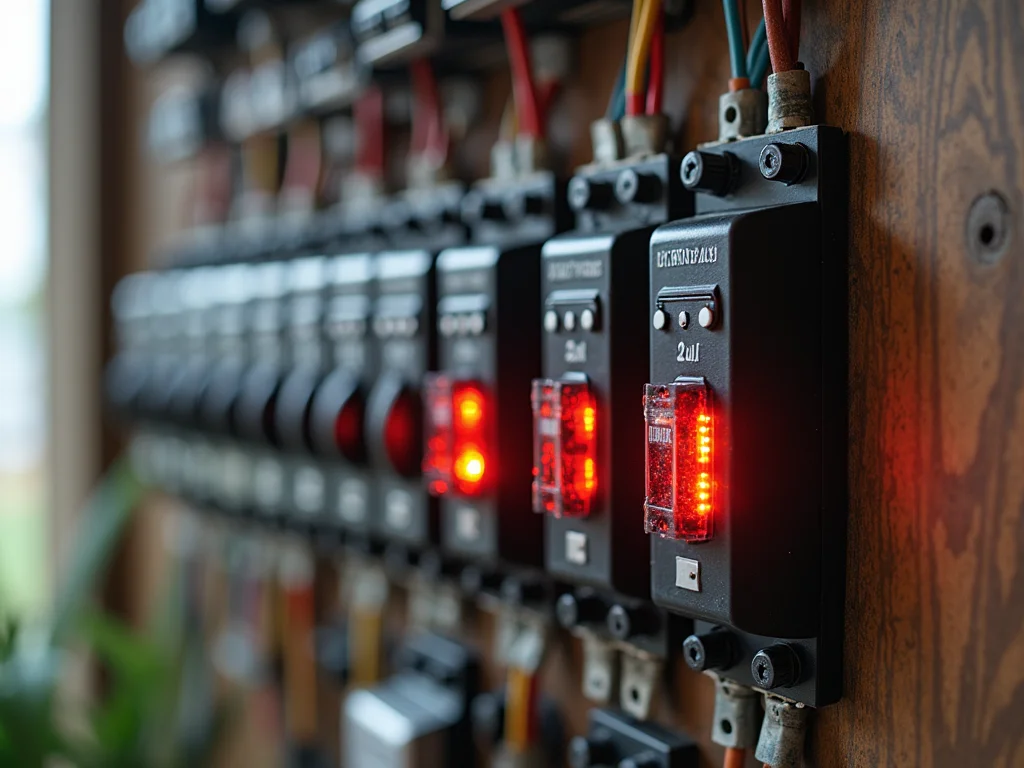Electrical Emergencies in Australian Homes: When to Call an Electrician Immediately

Table of Contents
- Electrical Emergencies in Australian Homes: When to Call an Electrician Immediately
- Key Takeaways:
- Why Electrical Emergencies Demand Immediate Action
- Common Electrical Emergencies in Australian Homes
- 1. Flickering or Dimming Lights
- 2. Burning Smell or Smoke
- 3. Electric Shocks
- 4. Localized Power Outages
- 5. Tripped Circuit Breakers That Won’t Reset
- Fast Fact: Electrical Incident Reporting
- When NOT to DIY
- Expert Insight
- How to Prepare for Electrical Emergencies
- Conclusion
Quick Answer: Electrical emergencies in your home can pose serious safety risks, including fires, shocks, or damage to appliances. Homeowners in Australia should contact a licensed electrician immediately if they encounter issues like power outages confined to their property, electrical shocks, burning smells from outlets, or flickering lights that persist. Acting quickly can prevent accidents and ensure compliance with Australian safety regulations.
Key Takeaways:
- Flickering Lights: Persistent flickering may indicate poor wiring or overloaded circuits.
- Burning Smell or Smoke: A sign of overheating wires or potential fire hazards.
- Electrical Shocks: Even minor shocks require urgent professional attention.
- Power Outages Confined to Your Home: Could signal internal wiring issues.
- Tripped Circuit Breakers That Won’t Reset: Indicates a serious fault in the system.
Why Electrical Emergencies Demand Immediate Action
Electrical systems are integral to modern living, but they can also be hazardous when faults occur. In Australia, electrical incidents are strictly regulated under the Electrical Safety Act 2002, which emphasizes the importance of addressing issues promptly to avoid risks such as fires or injuries.
Common Electrical Emergencies in Australian Homes
Here are some scenarios that warrant immediate action:
1. Flickering or Dimming Lights
- Often caused by loose connections or overloaded circuits.
- Prolonged flickering could lead to arcing, which poses a fire risk.
What to Do: Turn off the affected lights and contact an electrician immediately.
2. Burning Smell or Smoke
- A burning smell from outlets or appliances indicates overheating wires.
- Smoke is a clear sign of an imminent fire hazard.
What to Do: Shut off power at the main switchboard and call an electrician.
3. Electric Shocks
- Receiving a shock from appliances or outlets is a sign of faulty wiring or grounding issues.
- Even minor shocks can escalate into severe problems.
What to Do: Stop using the affected equipment and call an electrician right away.
4. Localized Power Outages
- If your home loses power but your neighbors still have electricity, it could indicate internal wiring faults or a tripped circuit breaker.
What to Do: Check your circuit breaker. If it doesn’t reset, contact a professional.
5. Tripped Circuit Breakers That Won’t Reset
- Frequent tripping often signals overloaded circuits or faulty appliances.
- If the breaker refuses to reset, it’s likely a serious issue.
What to Do: Avoid tampering with the breaker and call an electrician immediately.
Fast Fact: Electrical Incident Reporting
Under Australian law (Electrical Safety Act 2002), any serious electrical incident (e.g., shocks requiring medical attention) must be reported to the Electrical Safety Office. Ref: Electrical Safety Office
When NOT to DIY
While some minor electrical tasks like changing light bulbs are safe for homeowners, most electrical work in Australia requires a licensed professional. Attempting DIY repairs can result in severe penalties under Australian regulations and endanger lives.
| Task | DIY Allowed? | Requires Electrician? |
|---|---|---|
| Changing light bulbs | Yes | No |
| Installing new outlets | No | Yes |
| Replacing circuit breakers | No | Yes |
Expert Insight
“Electrical emergencies often escalate quickly if left unaddressed. Homeowners should never ignore warning signs like burning smells or persistent power issues. Always consult a licensed electrician for safety and compliance.”
How to Prepare for Electrical Emergencies
- Know Your Main Switchboard: Familiarize yourself with how to turn off power in case of emergencies.
- Install Surge Protectors: Protect appliances from damage caused by power surges.
- Keep Emergency Numbers Handy: Save contacts for local electricians and emergency services.
- Regular Maintenance Checks: Schedule inspections by licensed electricians to identify potential risks early.
Conclusion
Electrical emergencies are not just inconveniences—they are potential life-threatening situations that demand immediate attention. By recognizing the warning signs and acting quickly, Australian homeowners can protect their families and properties while ensuring compliance with stringent safety standards. Always rely on licensed professionals for any electrical work in your home.